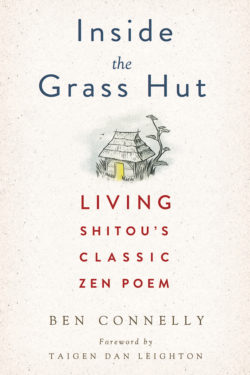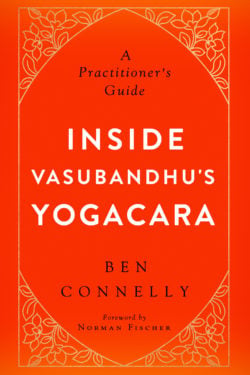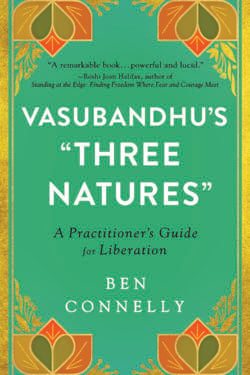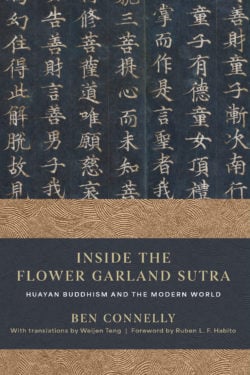Ben Connelly

Ben Connelly is a Soto Zen teacher and Dharma heir in the Katagiri lineage. He also teaches mindfulness in a wide variety of secular contexts including police training and addiction recovery groups, and works with multi-faith groups focused on social and climate justice. Ben serves the Minnesota Zen Meditation Center and travels to teach across the United States.
Books, Courses & Podcasts
Inside the Grass Hut
Enter the mind and practice of Zen: apply the insights of one of Zen’s classic poems to your life—here and now.
Shitou Xiqian’s “Song of the Grass Roof Hermitage” is a remarkably accessible work of profound depth; in thirty-two lines Shitou expresses the breadth of the entire Buddhist tradition with simple, vivid imagery. Ben Connelly’s Inside the Grass Hut unpacks the timeless poem and applies it to contemporary life. His book delivers a wealth of information on the context and content of this eighth-century work, as well as directly evokes the poem’s themes of simple living, calm, and a deep sense of connection to all things. Each pithy chapter focuses on a single line of the poem, letting the reader immerse himself thoroughly in each line and then come up for air before moving on to the next. Line by line, Connelly shows how the poem draws on and expresses elements from the thousand years of Buddhist thought that preceded it, expands on the poem’s depiction of a life of simple practice in nature, and tells stories of the way these teachings manifest in modern life. Connelly, like Shitou before him, proves himself adept at taking profound and complex themes from Zen and laying them out in a practical and understandable way. Eminently readable, thoroughly illuminating, Inside the Grass Hut shows the reader a path of wholehearted engagement—with the poem, and with the world.
Destined to become a trusted, dog-eared companion.
Inside Vasubandhu’s Yogacara
In this down-to-earth book, Ben Connelly sure-handedly guides us through the intricacies of Yogacara and the richness of the “Thirty Verses.” Dedicating a chapter of the book to each line of the poem, he lets us thoroughly lose ourselves in its depths. His warm and wise voice unpacks and contextualizes its wisdom, showing us how we can apply its ancient insights to our own modern lives, to create a life of engaged peace, harmony, compassion, and joy.
In fourth-century India one of the great geniuses of Buddhism, Vasubandhu, sought to reconcile the diverse ideas and forms of Buddhism practiced at the time and demonstrate how they could be effectively integrated into a single system. This was the Yogacara movement, and it continues to have great influence in modern Tibetan and Zen Buddhism. “Thirty Verses on Consciousness Only,” or “Trimshika,” is the most concise, comprehensive, and accessible work by this revered figure.
Vasubandhu’s “Thirty Verses” lay out a path of practice that integrates the most powerful of Buddhism’s psychological and mystical possibilities: Early Buddhism’s practices for shedding afflictive emotional habit and the Mahayana emphasis on shedding divisive concepts, the path of individual liberation and the path of freeing all beings, the path to nirvana and the path of enlightenment as the very ground of being right now. Although Yogacara has a reputation for being extremely complex, the “Thirty Verses” distills the principles of these traditions to their most practical forms, and this book follows that sense of focus; it goes to the heart of the matter—how do we alleviate suffering through shedding our emotional knots and our sense of alienation?
This is a great introduction to a philosophy, a master, and a work whose influence reverberates throughout modern Buddhism.
Mindfulness and Intimacy
Mindfulness is an ancient and powerful practice of awareness and nonjudgmental discernment that can help us ground ourselves in the present moment, with the world and our lives just as they are.
But there’s a risk: by focusing our attention on something (or someone), we might always see it as something other, as separate from ourselves. To close up this distance, mindfulness has traditionally been paired with a focus on intimacy, community, and interdependence. In this book, Ben Connelly shows us how to bring these two practices together—bringing warm hearts to our clear seeing.
Helpful meditations and exercises show how mindfulness and intimacy can together enrich our empathetic engagement with ourselves and the word around us—with our values, with the environment, and with the people in our lives, in all their distinct manifestations of race and religion, sexuality and gender, culture and class—and lead to a truly engaged, compassionate, and joy-filled life.
Vasubandhu’s “Three Natures”
In this plain-English commentary on Vasubandhu’s classic Treatise on the Three Natures, Ben Connelly shows the power of integrating early Buddhist psychology with the Mahayana emphasis on collective liberation. You’ll discover how wisdom from fourth-century India can be harnessed to heal and transform systems of harm within ourselves and our communities.
The three natures (svabhavas)—the imaginary, dependent, and complete, realized natures—are inherent aspects of all phenomena. The imaginary nature of things is what we think they are. Their dependent nature is that they appear to arise from countless conditions. The complete, realized nature is that they aren’t as we imagine them to be: things that can be grasped or pushed away. The three natures form the backbone of Yogacara philosophy, and by showing us how to see beyond our preconceived notions of ourselves and others, beyond the things that we’re convinced are “true,” they open up a path to personal and communal healing.
Dive into this empowering approach to freedom from suffering, from harmful personal and social patterns, and to finding peace and joyfulness in the present.
Inside the Flower Garland Sutra
A Soto Zen teacher explores the core teachings of the ancient Flower Garland school of Buddhism through an innovative and engaging narrative showing how to put these teachings into practice.
Huayan Buddhism arose in the sixth century in China rooted in the Mahayana Flower Garland Sutra. The teachings of Huayan and the sutra that inspired it had a profound influence on Chan and Zen. Huayan is relational, practical, and positive. Its emphasis on interdependence, celebration of the sensual world, and diversity of people and practices provides inspiration for what Thich Nhat Hanh called “engaged Buddhism”.
With Inside the Flower Garland Sutra Zen teacher Ben Connelly explains the significance of Huayan teachings for Buddhist practice. Each chapter is a commentary on one of the thirty lines of Uisang’s “Song of Dharma Nature”—a seminal Korean text that summarizes key aspects of Huayan thought—thus providing a broad overview of Huayan teachings and their practical implications for contemporary life, with a mix of testimonies from real-life situations and references to influential Buddhist texts.
Arising fifteen hundred years ago, Huayan has made a deep impact on East Asian Buddhism, and has much to offer during this era when many folks see ever-deepening divisions. Connelly explores how Huayan offers particular wisdom for those concerned about how to care for their own lives as they work to end harms such as ecological devastation, poverty, militarism, addiction, marginalization, and exploitation.





